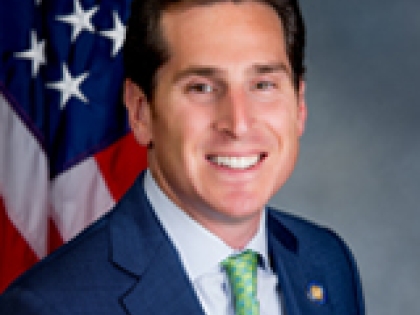
Law Beat: Colonie justices flouting new law requiring reason for recusal
A new state law enacted to provide more transparency into judicial recusals is at the heart of the latest spat between Albany County public defenders and the town of Colonie Justice Court.
Court papers reviewed by Law Beat show Senior Colonie Town Justice Peter Crummey has repeatedly disqualified himself in recent months in cases involving Assistant Public Defender Donald Partyka. On Oct. 27, Crummey informed Albany County Public Defender Stephen Herrick, a retired judge who served at the city and county levels in Albany, that he was recusing himself because he was “ethically prohibited” in those cases.
In addition, Crummey told Herrick that the court’s other two justices - Andrew Sommers and Norman Massry - would also be recusing themselves from cases involving Partyka, whose clients have had their Colonie cases moved to other venues.
The mysterious recusals raised questions - but at the time, Crummey, Sommers and Massry were under no obligation to disclose the reason. But in December, Gov. Andrew Cuomo signed a new law into effect requiring judges to provide a reason when they recuse themselves from a case.
The law, sponsored by Sen. Todd Kaminsky, a Democrat from Long Beach, and Assemblywoman Monica Wallace, an Erie County Democrat, was passed a year after three state Supreme Court judges on Long Island recused themselves within a three-week span from a civil case without saying why.
“Judicial recusal is an important mechanism to safeguard the perception of judicial integrity,” a memo in support of the bill stated. It said judges have had total discretion to recuse themselves from cases without giving reason, making it tough to know if the recusal was really necessary.
The language of the law said exceptions were allowed if the reason for recusal would “result in embarrassment, or is of a compelling personal nature affecting the privacy of the judge or a person related to the judge within the sixth degree” through ancestry or affinity.
In reference to the Partyka case refusals, the judges have given no official reason. Crummey could argue that he satisfied the requirements of the new law by saying he was "ethically prohibited" -- and, perhaps, that if he were to disclose more information he could be in violation of judicial ethical rules. If the judge, for instance, had lodged a complaint about Partyka to the Attorney Grievance Committee of the region's appellate court, would he be at liberty to disclose that?
Wallace told Law Beat, after being provided documents on the matter, that it was vague for a judge to tell an attorney he was “ethically prohibited” from a case without disclosing the reason why. Reasons for recusal outlined in the law are almost all ethics-related, she said, noting that was the purpose of the law.
"The law requires a judge to provide reasons for recusing, so to the extent that there hasn’t really been a reason given, I don’t think that what has been presented ... I don't think that that complies with the spirit of the law, at least seemingly," the assemblywoman said.
"Now I think that if the judges were to say that 'we recuse ourselves for reasons that need to remain confidential under the law or under statute,' that's one thing," Wallace said. "But they're not saying that at this point. They are just saying some vague reference to ethical reasons. which we don't know what that means."
Wallace said she found it "also kind of unusual in my mind" that all the judges recused themselves. Typically, it is on a case-by-case basis, she said.
What's clear is the public defenders want more of an explanation.
On Feb. 9, Partyka wrote a letter to Mary Falace-Mayr, the chief clerk of the justice court, asking why he has not been told the reason for the recusal. Partyka argued in the letter that there was no statutory authority for a court to have a standing recusal – or for Partyka’s recusal to extend to other judges in the town court on his own.
Partyka noted that four days earlier, Herrick received a letter from Crummey.
“As you know, based on this Court's recusal regarding matters involving Mr. Partyka provided to Mr. Partyka and your office last October, this Court may not preside over matters in which Mr. Partyka appears," Crummey told Herrick. "If you require an additional copy of this Court's letter to your office setting forth the recusal, dated October 27, 2020, please contact the Court."
Meanwhile, Herrick filed an Article 78 lawsuit against the Colonie justice court in late December to appeal the previous denial of requests for transcripts and calendars from the court.
In September 2019, Herrick sued Falace-Mayr and alleged the clerk stonewalled more than a dozen public information requests, refusing to comply with requests for transcripts in cases of public defender clients. He sought to compel the clerk to provide the documents, but the suit was dismissed by Albany County Family Court Judge Susan Kushner the following May. The latest suit is before acting Supreme Court Justice David Weinstein.
Issues of transparency and the Colonie court also go beyond sparring with public defenders.
In September 2018, Law Beat experienced an issue when it requested "all public information" from the court in a second-degree burglary case. Falace-Mayr denied the request, claiming it was a "general request" and that the justice court did not accept such requests. It was inconsistent with the state's Uniform Justice Court Act, which states that the records and dockets of the court "except as otherwise provided by law shall be at reasonable times open for inspection to the public."
